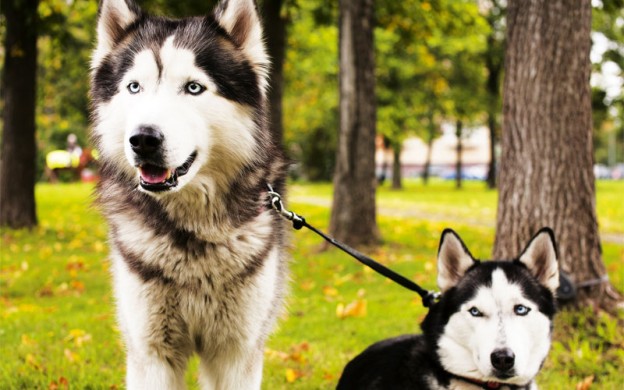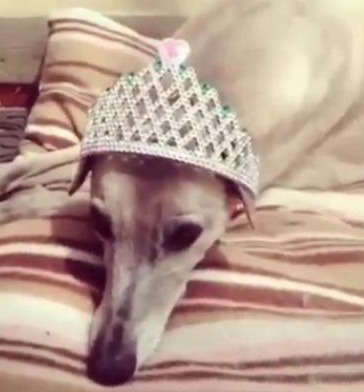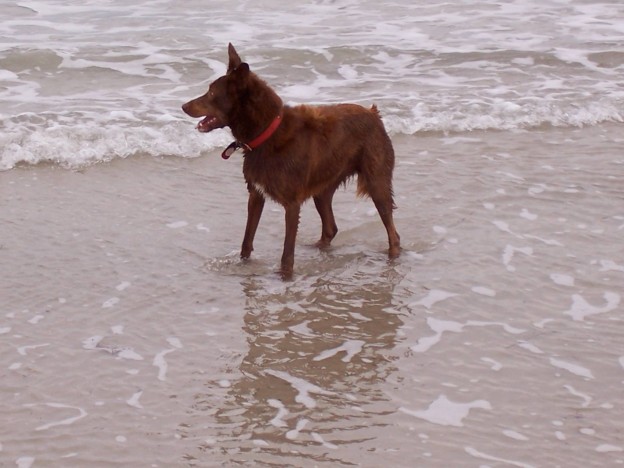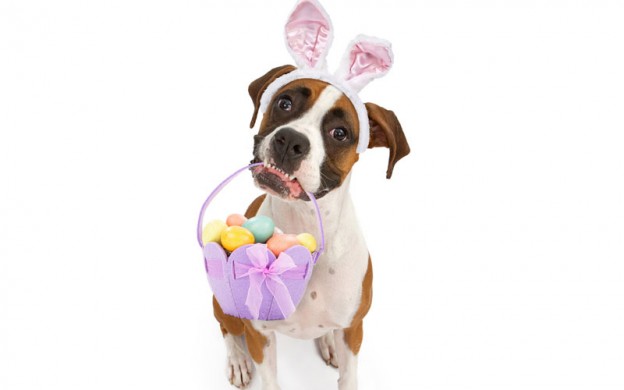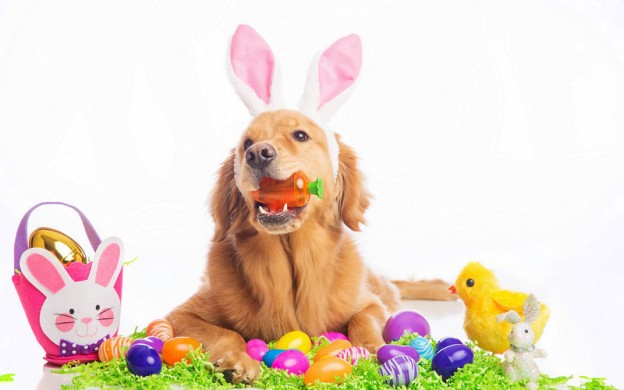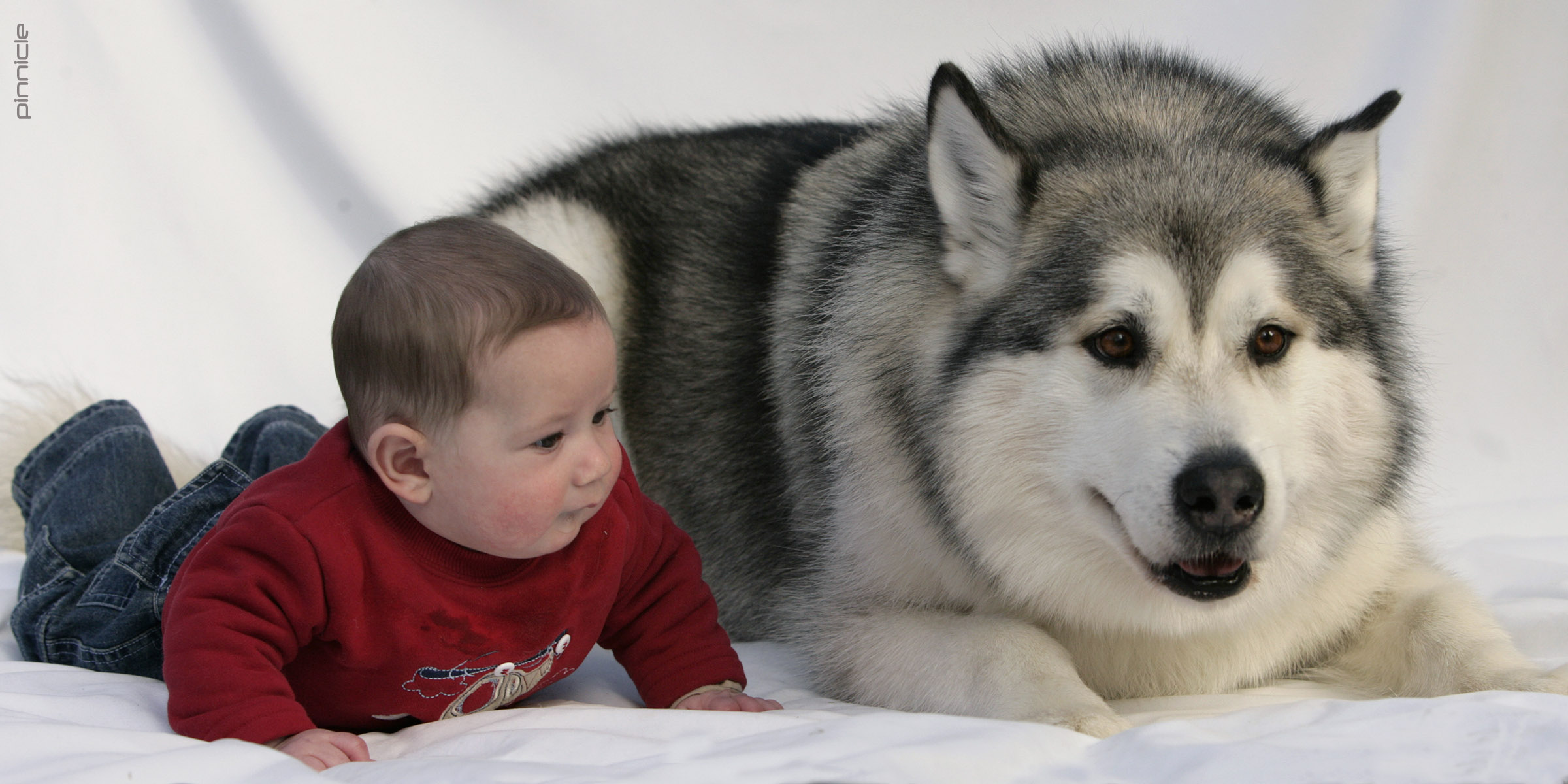
For many people, their dogs are their ‘fur-babies’ — the centre of attention and object of affection… until a human one comes along to share the limelight. Caroline Zambrano finds out how our dog and babies can get along.
Most dogs are happy to accept newcomers into the family and very few show any signs of animosity to babies when they meet. But no matter how much you prepare your pooch for the big day, they will inevitably have some mixed feelings about sharing the love, says Dr Joanne Righetti, renowned animal behaviourist and author of pet behaviour books.
“Parents tend to feel guilty that their dog is not getting all their attention, especially if their dog has previously been the baby of the house,” she says. “But there’s nothing wrong with having your dog take a back seat for a while so you can have some bonding time with your baby. It’s a part of the process of parenthood.”
To help your dog get used to life with a baby, preparing for changes long before your newborn arrives will help. Dr Righetti shares five tips for a happy transition:
1. Is the baby’s room or couch off limits?
After your baby arrives, do you intend to restrict access to furniture, such as the couch or the bed? If so, start doing so about four or five months before your baby comes home.
You can also start teaching your dog to stay out of certain areas of the home, such as the nursery, so that he understands he may not cross that ‘invisible line’ without your permission after the baby arrives.
2. Hello baby!
How do you prepare your dog for a baby that isn’t there yet? You can wrap up a doll like a real baby and carry it around the house and backyard while ignoring your dog. Make sure you put the doll out of your dog’s reach when you are not ‘nursing’ it so you don’t find it buried with the bone in the garden.
You can also invite friends who have babies to give your dog a more real-life experience. Observe your dog’s behaviour around babies and praise often for good behaviour. (Never leave your dog and other babies and young children alone and make sure to supervise all interactions between them.)
3. What’s that noise? What’s that smell?
It’s hard to believe how much noise a baby can make, but it’s the only way babies communicate, especially if they are unwell. To get your dog used to all the noise before your baby arrives, play sounds of babies. YouTube and other internet websites are filled with videos of babies crying and making all sorts of noise. (Don’t forget to praise your dog for behaving calmly.)
Babies can also create different smells (especially in the nappy!) so it would be a good idea to start using baby lotions, oils and nappy wipes around the home to get your dog’s nose acclimatised.
And when your baby is born and you’re still at the hospital, get your partner or family member to bring home a blanket that smells of your new baby. Allow your dog to sniff the blanket but not get hold of it. Praise your pooch for calm behaviour.
4. Ouch!
Babies are curious and will grasp, hold on to, pull at and try to put everything they can get their little hands on into their mouth. No doubt your dog will be a target, too! To get your dog used to the various actions of a baby, touch all over its body and gently pull its ears, paws and tail, just like your baby would do.
If your dog hasn’t used a crate before, you may wish to consider crate training now. Just like play pens are a safe haven for babies, a crate can give your dog a safe place to stay away from baby fingers.
5. Sit, stay, good dog!
If your dog is not obedience trained before your baby arrives, it will be more work for you after the baby’s arrival. Speak to your vet or professional dog trainer to address your dog’s jumping, barking or any other annoying habits you’re concerned about. Last thing you need is to have your dog jump on you as you’re nursing your baby, or bark when you and baby are asleep!
Getting your dog used to walking beside an empty baby pram or stroller will also teach him how to behave on future walks with you and the baby.
If your dog has ever shown aggressive or fearful behaviour towards children, you must get help from a professional animal behaviourist long before your baby is due.
Good preparation creates a happy home
Dogs need time to adjust to changes in the household and following these tips can help to create a happy and “patient” dog. And when the day comes when you bring home baby, your beloved pooch will be ready to welcome you both, knowing all the doggy rules beforehand.
“Most dogs can learn to accept newcomers if they’ve had some preparation to adjust to the changes, but the length of the adjustment period varies depending on the individual dog. The arrival of a new baby can also trigger behaviour changes. Consult your vet or animal behaviourist for help,” says Dr Righetti.
And one final tip: Put a lid on that nappy bucket. Just because your pooch is ready for a baby doesn’t mean he won’t steal the dirty nappies!
Tips for baby’s first day home
Bringing a baby home is an exciting but also overwhelming time for families, including the dog! Here are some tips to ensure the introduction of your dog to baby is a positive experience.
- Before the baby arrives home from the hospital, get Dad or a family member to bring home a blanket, towel or clothes the baby has worn for your dog to smell. Allow your dog to smell the scent from the items but do not play tug-of-war with them.
- Introduce your dog to your baby slowly and gradually. When baby arrives home from the hospital, let Mum come into the house alone and calmly greet the dog. Put the dog on a leash and have Dad come in with the baby. If your dog looks stressed, let Dad walk into another room with the baby. If your dog is calm and relaxed, walk your dog slowly towards the baby and let him sniff the baby’s feet — not the face — like it is a normal event.
- Share your attention with your dog when your baby is around so that your dog does not develop “sibling” rivalry. Do not yell at your dog near the baby or banish him outside, as your dog will then associate the baby with the negative feelings.
- Praise your dog when the baby is around so that your dog associates the baby with pleasant experiences. Give your dog treats when you nurse or change your baby’s nappies to further create positive associations.
- Never leave your baby alone with your dog. Seek professional help if you are concerned about your dog’s interaction with the baby, such as displays of aggression or sudden changes in behaviour with humans or other pets in the home.



